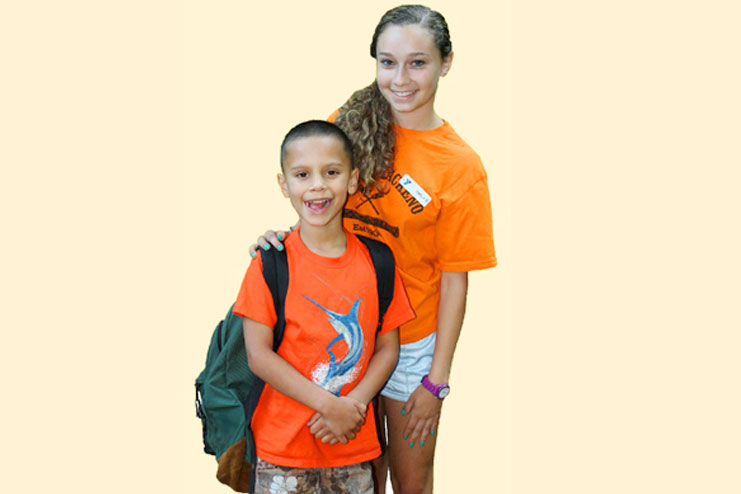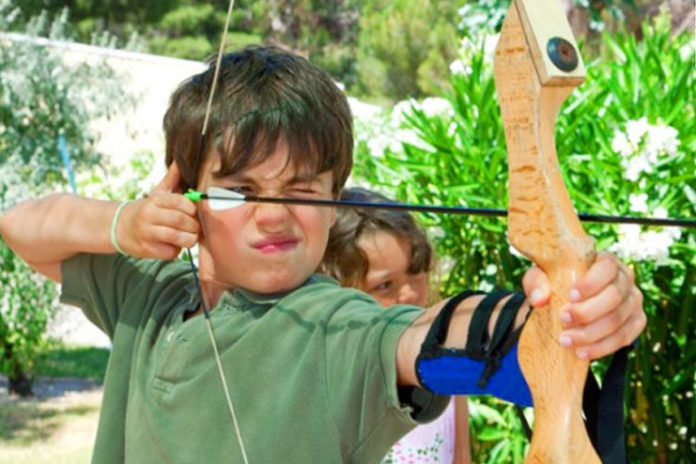Most campers, more so the first-timers can’t wait for the school to be over and out and Summer Camp fun to kick in. After all, which kid on the planet won’t be excited at the idea of spending magical weeks away from home and into the woods and the wild, swimming in a lake, trekking along the riverside, toasting marshmallows around a roaring bonfire and making friends to last a lifetime? But then, as hours closes down, slowly and steadily all the excitement fizzes out, and anxiety sets in. Welcome to the reality!
Homesickness is natural, and can make matters difficult, especially for kids who have never been away from home before. The very thought of spending nights away from home, parents, pets, friends and one’s bed could freak the little ones out.
While summer camp is all about fun and new experiences, getting used to new people, new activities, new chores, new routines, and new challenges can topple off their equanimity and make them feel down in the dumps. Needless to say that tearful phone call or a sad note from your child away at a camp won’t help to make you feel any good about things either.
 Fortunately, there’s lots that parents and kids can do to minimize this sinking feeling and make the most of their camp experience. Camp Navigator enlightens you on a few helpful tips that can help your child cope with the first-time camping experience with ease. Read on.
Fortunately, there’s lots that parents and kids can do to minimize this sinking feeling and make the most of their camp experience. Camp Navigator enlightens you on a few helpful tips that can help your child cope with the first-time camping experience with ease. Read on.
- Some children are good at expressing their anxiety. Communicate with your little ones before sending them away on a camp and try to figure out what are the things that excite them and what things don’t.
- Validate your child’s fears. Share your own similar experiences and tell them how you coped. Refrain from telling your kids things like “you are old now enough now to handle certain situations” as this might just invalidate their insecurities.
- Do a role-play. Yes, you heard that right! If your child is worried about making friends or how to handle bullies at the camp, get your entire family to role-play different real situations that might happen in the camp. Make sure to include scenes like introducing oneself, how to introduce yourself, how to deal with the bullies, when to ask for help, how to ignore rude comments, etc.
- If your child is anxious about putting up at a new place with unknown people, it would do you heap loads of good to arrange a prior visit to the camp. Meet with camp counselors, check washrooms, sleeping arrangements, etc. If you can’t make a trip, then arrive ahead of schedule so that a walk through the camp with your child can be arranged.
- Give your child something to look forward to. Pack them sealed letters — one for each day. You tuck in family photo, a warm wish, a candy, stickers, etc. It’s would be like a small reassurance for your kids.
- Talk, talk, talk about benefits of camp. List the things that they can do at camp that they can’t at home.
- If it’s your child’s first-time, you can arrange for sleepovers with friends or even with family members in advance to give him a taste of how it feels to be away from home.
- You can have a word with your child’s camp counselor and request them to push and drive your child for the first few days.
- Be strong and confident and don’t make pick-deals with your child. When your child is in stress, he needs to learn to rely on camp staff and his coping skills rather than anything else.
Know that kids will experience homesickness and stress while at the camp. But understand that coaching your child through these experiences will boost his confidence, social skills and leadership and help him cope well in life.









